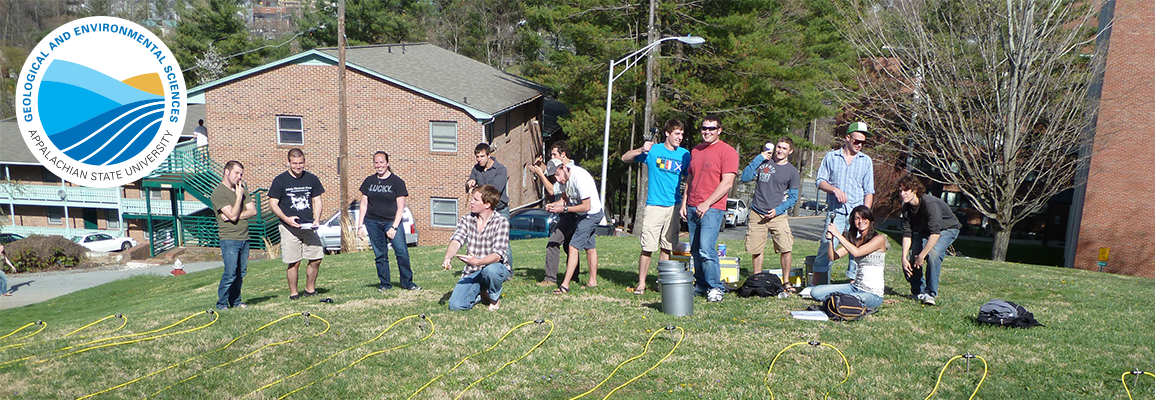Geology (BS) - Environmental Geology
A BS in Geology with an Environmental Geology concentration will provide the necessary background for students who seek a career in which they apply geological principles to the solution of environmental problems. Students in this concentration will study modern earth processes and use analytical techniques that are applicable to measuring active systems, such as ground and surface water flow and chemistry.
Our students in this major are in high demand by environmental consulting firms in the southeastern US because they have the necessary, hands-on, field-based skill set required for these jobs. If you want a job immediately in the environmental consulting industry upon graduation, and are not interested in pursuing graduate school, this is the major for you.
Geology majors in the B.S. in Environmental Geology degree program must take courses in hydrogeology, engineering, aqueous geochemistry, and environmental geology, in addition to several core geology classes (Structural Geology, Sedimentology, etc.). They must also complete courses in a combination of subjects outside of geology, such as chemistry, physics, math, economics/business, and geography, among others. Summer field camp is not required for this concentration, but is encouraged for students who want to go.
Geology (BS) - Environmental Geology (259C)
How is this different than the Environmental Science programs of study?
- The Geology (BS) - Environmental Geology degree track is designed to provide students with the hands-on, field-based training in demand by the environmental industry.
- Moreover, students in the Geology (BS) - Environmental Geology track will have the background to begin the licensure process to become a Professional Geologist (PG), which is a necessary licensure for career advancement in the environmental industry. Students in our program are encouraged to take Part I of the Association of State Boards of Geology (ASBOG) licensure exam their senior year.
- In contrast, the coursework required for the Environmental Science programs of study provides a more interdisciplinary overview of the associated environmental sciences from a purely academic perspective, but due to the many elective options, may not cover all the geoscience topics necessary for Professional Geologist licensure.
For more information, see the What should I major in? page, which will help you decide which degree track is right for you.
